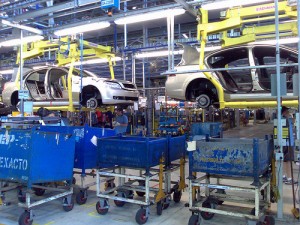The Productivity Commission has officially started the investigation of the Australian automotive manufacturing industry.

User: HoskingIndustries
According to the Herald Sun, the preliminary findings report is to be delivered to Federal Industry Minister Ian Macfarlane no later than December 20.
The deadline is set to meet Holden’s Christmas deadline so that General Motors can make a final decision whether or not to pull the plug on the early ground works for future models at the Elizabeth car manufacturing factory.
The final report is to be submitted to the Government on March 31st, following the South Australian state election scheduled in early March.
Mr. Macfarlane and Federal Treasurer Joe Hockey issued a joint statement revealing that the Commission will “examine the best way that the Australian Government and Australian economy can ensure the ongoing viability of the automotive industry … including a sustainable and profitable automotive manufacturing sector.”
The investigation will be focused on the industry’s weak points, such as “international competitiveness, exports, workforce structure and practices, skills levels and long-term sustainability”, as well as “the potential for Australian-made cars to be exported overseas.”
The strong Australian dollar has reduced exports, and investments in new manufacturing facilities are being suppressed by the country’s proximity to South-East Asian countries that have labor rates which are one quarter of Australia’s.
The joint statement further reveals that the Government has begun implementation of measures aimed at assisting the automotive manufacturing industry.
“The Government has pledged not to proceed with the previous Government’s $1.8 billion Fringe Benefits Tax hit on the automotive sector. Further, we have already released draft legislation to rescind the carbon tax. The carbon tax adds, on average, $400 to the cost of every vehicle produced in Australia.”
According to the media release issued by the Government of Australia, the Commission has been tasked to undertake an inquiry into the car manufacturing sector covering the following grounds:
-analyze the national and international market, as well as regulatory factors that have significant effects on the industry;
-pinpoint and asses any alternative public support mechanisms;
-identify transition issues or adjustment costs that may arise from alternative support mechanisms or changes in policy and how they might be managed;
-examine the industry capabilities, direct employment and economic benefits, as well as secondary impacts on other economy sectors;
-quantify costs and benefits of current and alternative mechanisms of assistance.
The Commission is to undertake public consultation, inviting public submissions and releasing a preliminary findings report to the public.



















